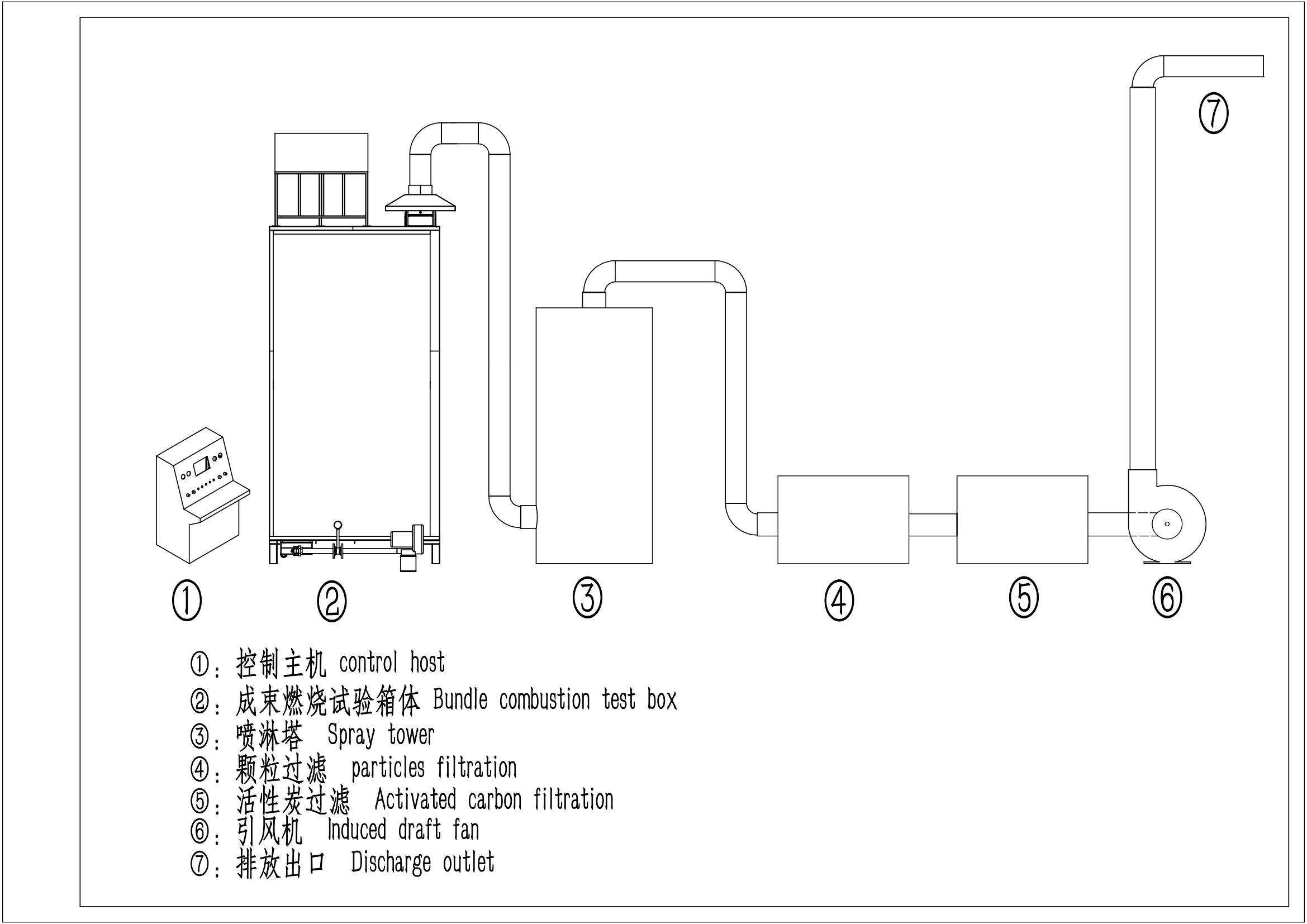Cable Torsion Testing Equipment Manufacturing and Quality Assurance Solutions
Understanding Cable Torsion Testing Machines A Key Component in Quality Assurance
In industrial manufacturing, ensuring product quality is paramount, particularly when it comes to materials that undergo heavy stress and strain in their applications. One such material is cable, commonly used in various sectors, from construction to telecommunications. As a result, the demand for reliable cable torsion testing machines has surged. These machines play a critical role in assessing the durability and strength of cables, ensuring they meet industry standards and specifications.
What is Torsion Testing?
Torsion testing refers to the procedure of applying a twisting force to a specimen—in this case, a cable—to evaluate its resistance to twisting and to determine its mechanical properties under torsional stress. This type of testing is crucial because cables, especially in high-tension applications, are subject to forces that can cause them to twist and eventually fail if they are not properly designed or manufactured.
The objectives of torsion testing include
1. Assessing Material Strength By measuring how much a cable can twist before it fails, manufacturers can gauge the mechanical strength of the material. 2. Evaluating Performance Under Load Torsion testing simulates real-world conditions that cables will face, helping identify potential points of failure. 3. Meeting Industry Standards Different industries have specific standards (such as ASTM or ISO) that cables must meet to ensure safety and effectiveness. Torsion testing ensures compliance with these standards.
Features of a Cable Torsion Testing Machine
A state-of-the-art cable torsion testing machine is equipped with several essential features
. These include- Precision Load Application Machines should provide precise control over the amount of torque applied to ensure accurate testing conditions. - Digital Readouts and Data Logging Modern machines come equipped with digital displays that show real-time data during testing. Data logging capabilities are also crucial for generating reports and maintaining records. - User-Friendly Interface An intuitive interface allows operators to set up tests efficiently, reducing the potential for human error. - Safety Mechanisms Given the high forces involved in torsion testing, safety mechanisms, such as overload protection and emergency stop functions, are critical to protect both the machine and the operator.
cable torsion testing machine factory

The Manufacturing Process
When selecting a cable torsion testing machine, it is essential to understand the manufacturing process behind these machines. Reputable manufacturers utilize high-quality materials and advanced technology to produce machines that can withstand rigorous testing procedures. The production process typically involves
1. Design and Prototyping Engineers design the machine using CAD software, creating prototypes to test for functionality and durability before full-scale production. 2. Material Selection High-strength steel and other durable materials are chosen to ensure longevity and reliability under extreme testing conditions. 3. Assembly Once individual components are manufactured, they are carefully assembled to create a fully functional testing machine. 4. Calibration Before shipment, the machine undergoes rigorous calibration to ensure accurate performance.
Applications in Various Industries
Cable torsion testing machines find applications in numerous industries, including
- Construction Cables used in construction must be able to endure significant torsional forces, especially in elevating and supporting structures. - Telecommunications Cables used in telecommunications must maintain performance under the stresses of installation and environmental conditions, making torsion testing vital. - Automotive Cables in cars, such as those for braking systems, must also demonstrate reliable performance under torsional stresses.
Conclusion
The importance of cable torsion testing machines cannot be overstated. They are crucial for ensuring that cables are capable of withstanding the demanding conditions they will face in real-world applications. By employing advanced technology in design and construction, manufacturers can produce machines that provide accurate and reliable testing results. As industries continue to evolve and demand higher performance from materials, the role of cable torsion testing will only grow more critical. Ensuring the quality and performance of cables not only enhances product safety but also boosts consumer confidence in various products and services. Thus, investing in a high-quality cable torsion testing machine is an investment in quality assurance and future readiness in a competitive market.
-
Why the Conductor Resistance Constant Temperature Measurement Machine Redefines Precision
NewsJun.20,2025
-
Reliable Testing Starts Here: Why the High Insulation Resistance Measuring Instrument Is a Must-Have
NewsJun.20,2025
-
Flexible Cable Flexing Test Equipment: The Precision Standard for Cable Durability and Performance Testing
NewsJun.20,2025
-
Digital Measurement Projector: Precision Visualization for Modern Manufacturing
NewsJun.20,2025
-
Computer Control Electronic Tensile Tester: Precision and Power for the Modern Metal Industry
NewsJun.20,2025
-
Cable Spark Tester: Your Ultimate Insulation Assurance for Wire and Cable Testing
NewsJun.20,2025
 Copyright © 2025 Hebei Fangyuan Instrument & Equipment Co.,Ltd. All Rights Reserved. Sitemap | Privacy Policy
Copyright © 2025 Hebei Fangyuan Instrument & Equipment Co.,Ltd. All Rights Reserved. Sitemap | Privacy Policy
